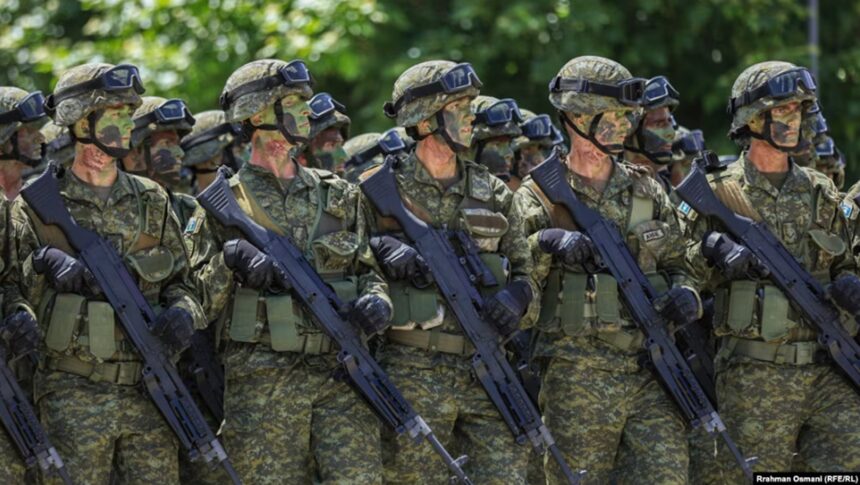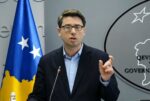Mentor Vrajolli, Executive Director of the Kosovo Center for Security Studies (QKSS), stated that Kosovo’s accession to NATO would be of significant strategic interest to the alliance, as it would reduce security costs in the Western Balkans and provide additional useful resources for member states.
In an interview with Ekonomia Online, Vrajolli noted that Kosovo is developing a modern army with personnel trained at some of the world’s most prestigious military academies, making the country a valuable asset for the alliance at a time when global insecurity is at its peak.
“It is in NATO’s extremely high interest for Kosovo to be part of the alliance because it reduces the need to invest in security in the Western Balkans, allowing these resources to be used elsewhere. Additionally, Kosovo’s resources could be beneficial because, unlike other states, Kosovo is building a highly modern army with personnel trained in the best academies worldwide. This may allow these individuals to serve the needs of the alliance. We are in a period where global insecurity is at its highest, so the number of soldiers Kosovo is developing may also be of interest to NATO,” Vrajolli said.
He emphasized that recent developments in the defense sector show clear progress in Kosovo, particularly with support from the United States.
“What has been observed recently is that Kosovo now seems to have more direct cooperation in the defense sector than last year. This is evident with the contingent of military equipment Kosovo received from the U.S., demonstrating clear progress in the development of the defense sector,” he noted.
Regarding the prospects of NATO membership, Vrajolli stressed that the process depends not only on Kosovo but also on the support of key alliance members.
“Kosovo’s NATO membership does not depend solely on the country itself. It also relies on support from NATO states, particularly the United States. It seems that in some way the U.S. has created a dynamic even with the EU or European countries in general, so strong support is needed from key European states such as the United Kingdom, France, Italy, and Germany, which could convince those who do not recognize Kosovo to at least abstain regarding Kosovo’s NATO membership request.”
Vrajolli also cited Sweden as an example of how compromises can be reached within NATO when there is the will from major powers.
“Especially in the case of Sweden, it was observed that NATO can find compromises if there is pressure from key NATO states. Even when a country seems unable to join NATO, solutions can be found. Turkey’s veto against Sweden was extremely strong, and the change in Turkey’s stance shows that NATO can find ways to achieve consensus and overcome challenges,” he concluded.







